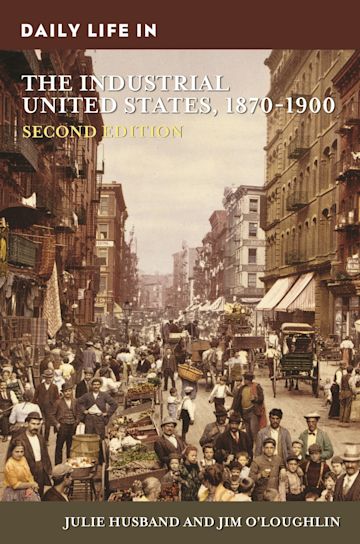Free US delivery on orders $35 or over
You must sign in to add this item to your wishlist. Please sign in or create an account
Not just about the rise of the factories or the emergence of the modern city, this fascinating history conveys how it felt to work the assembly line and walk the bustling urban streets.
Daily Life in the Industrial United States: 1870–1900 is a narrative-based social history that is ideal for college and high school students researching this era. Thematically organized chapters, devoted to Economic Life, Domestic Life, Recreational Life, and other themes, are broad in scope but include primary documents and telling details that give readers a visceral sense of the lives of people who lived during the era of industrialization.
Primary documents range from first-person diaries of individuals who lived during the era, to letters from freed slaves looking to reunite with relatives sold away from them, to speeches and essays by activists including Frederick Douglass and Jane Addams. They reveal how people understood the goals of education, the legal position of African Americans in the South, and marriage, among many other daily phenomena. Readers will become privy to a range of personal experiences while comprehending the importance of the economic and social developments of the period. A chronology, a glossary, a selection of illustrations, and further reading sources complete the work.
| Published | Jun 24 2019 |
|---|---|
| Format | Hardback |
| Edition | 2nd |
| Extent | 328 |
| ISBN | 9781440863486 |
| Imprint | Greenwood |
| Illustrations | 20 bw illus |
| Dimensions | 9 x 6 inches |
| Series | The Greenwood Press Daily Life Through History Series |
| Publisher | Bloomsbury Publishing |
Free US delivery on orders $35 or over
Your School account is not valid for the United States site. You have been logged out of your account.
You are on the United States site. Would you like to go to the United States site?
Error message.

